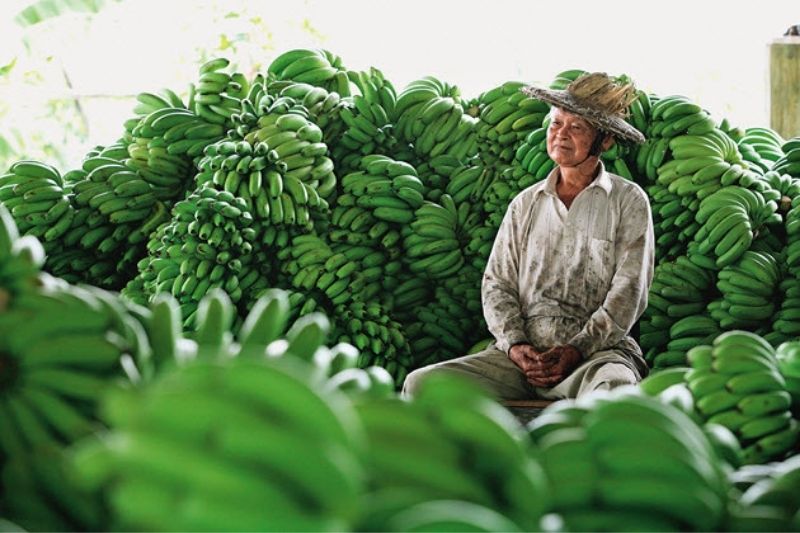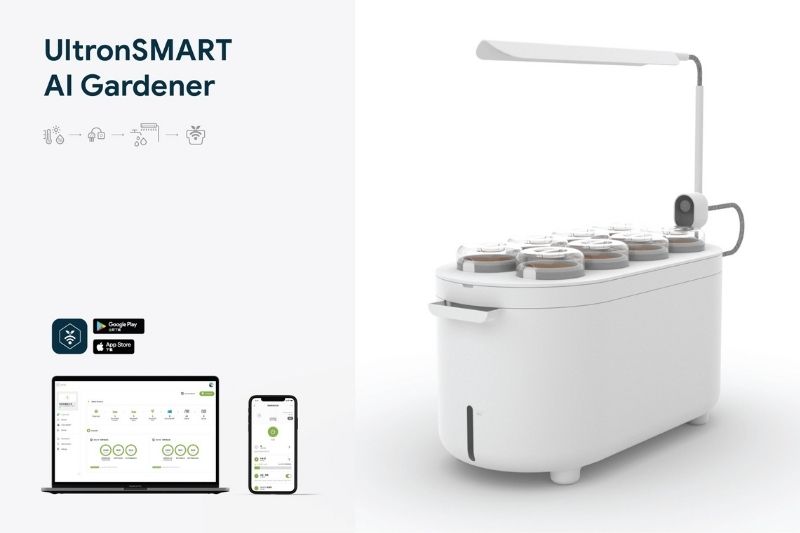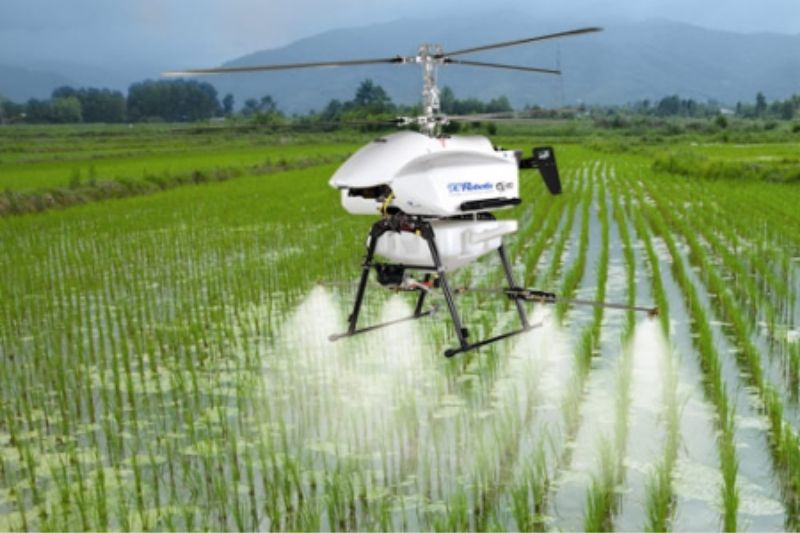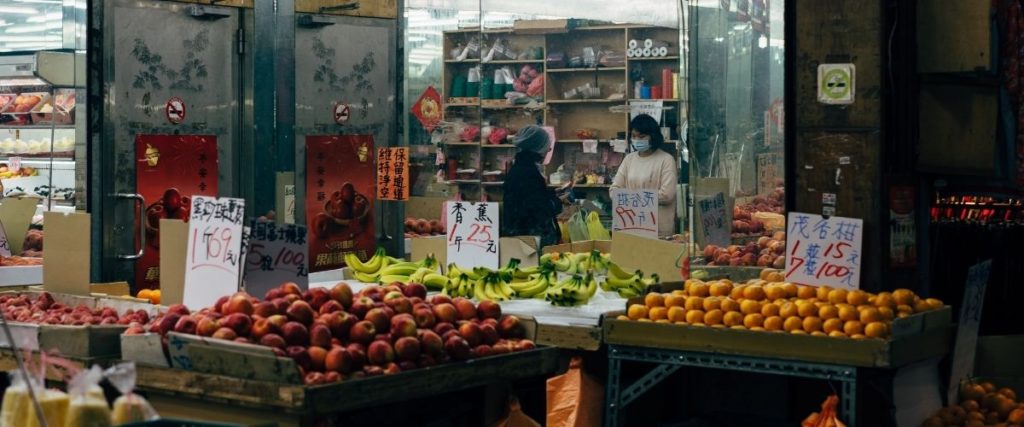Global food demand is growing, but food supply is increasingly constrained by dwindling resources, urbanisation, climate change, and water shortage. AgriTech, the sector solving this problem, is on the rise. To learn about AgriTech, and why APAC holds countless investment opportunities, read our quick guide. In this instalment we’re diving into the AgriTech industry in Taiwan.
Nicknamed the “Fruit Kingdom” for its superb fruit production, Taiwan is known for its high-quality agriculture. Its fertile volcanic soils and subtropical climate enable farmers to grow an impressive variety of produce. However, only 25% of Taiwan’s land is suitable for farming due to the country’s mountainous geography, and this is portioned into small farms, preventing economies of scale. Furthermore, Taiwan’s subtropical climate attracts pests, centuries of over-cultivation have eroded its soil, and seasonal typhoons and heavy flooding provide considerable climate risks. As a result, the farming process is labour-intensive. At the same time, Taiwan’s agricultural workforce is also on the decline, only taking up 4% of Taiwan’s total workforce. The country’s food sufficiency rate was only 35% in 2018. Recently, the effects of this import reliance was heavily felt, when Argentina stopped its exports of forage corn due to the Covid-19 pandemic and caused a crisis for Taiwan’s pig farmers.

Source: CW
In response to these challenges, the Taiwanese government has put food security as a priority on the national agenda. It aims to increase its food self-sufficiency, in 2017 passing the “Smart Agriculture 4.0 Program”, a policy investing in precision agriculture that makes farming more productive, resource-efficient, and environmentally friendly. In fact, Taiwan is uniquely placed to lead the AgriTech sector. It already excels at manufacturing all the technological components required for Agriculture 4.0: it is one of the world’s largest producers of smart sensors, the semiconductors used to create these sensors, solar energy cells, LEDs, drones, data mining algorithms, and robotics parts for planting and harvesting. This means the island is an ideal place for putting together prototypes relatively quickly and cheaply. The main obstacle for Agriculture 4.0, rather, is the adoption of technology. Traditional farmers lack the technological know-how, and culturally, farming is perceived as either a technology-free connection with nature, or an undesirable job with low pay. If these obstacles are overcome, Taiwan could easily become one of the largest and most profitable food producers in the world, coupling its technological prowess with its reputation as a quality food producer.
Startups to Watch Out For
YesHealth Group
Founded in 2011, vertical farming company YesHealth Group produces 1,500 kilograms of leafy greens per day in its iFarm, a 2,500 square metre warehouse factory. According to YesHealth, this yield is 100 times more efficient than that of a traditional farm using the same area, and with only 10% as much water required. YesHealth has also established a farm in Shenzhen, invested in the UK as an overseas base, and partnered up with a Danish startup to develop Copenhagen Market’s new 14-story vertical farm. Plans are already underway to expand to other Scandinavian countries. The company makes its own LED lights through a local contractor rather than relying on a major manufacturer like Philips, which means it can be nimble in introducing new technology: the iFarm uses sixth generation LED lighting, and new, increasingly energy-efficient iterations are introduced on an almost annual basis.
New Garden
Founded in 2016, Taiwanese startup New Garden is an “Artificial Intelligence of Things” (AIoT) company. AIoT is essentially the combination of Artificial Intelligence (AI) with Internet of Things (IoT), where AI technology is directly embedded into IoT hardware, processing and interpreting retrieved data on the spot. New Garden’s main offering is its AIoT ecosystem, ULTRON. Their new ULTRON-powered product is the ULTRON Smart AI Gardener, a self-caring planting system embedded with smart lighting, a watering system, and multiple connected sensors. Basically a cloud-to-edge Smart Agriculture System, it allows users to grow any plant with almost zero effort, supported by the UltronSMART Agriculture Platform and App which was developed in consultation with agriculture experts. The company is one of the winners of the 2020 AI 50 Global AI Startups, and the ULTRON Smart AI Gardener will be ready for market in March 2021.

Source: CES
LeBio Smart Farming Solutions
Founded in 2007 by an expert orchid breeder who identified major technological and climate challenges looming over his industry, LeBio offers a three-part turnkey smart farming solution. One of the smart technologies it has launched is the Spectral X, a new type of agriculture net that adjusts sunlight and RGB spectrum ratios to improve plant health and growth over time.
Thunder Tiger and GEOSAT Aerospace and Technology
These two established companies in Taiwan hardly qualify as startups, but they have lately devoted attention to AgriTech. Each has launched a robotics-based product for the industry. Thunder Tiger’s Thunder Hawk can spray pesticides across a hectare of land within eight minutes, greatly improving agricultural efficiency whilst reducing human and plant exposure to pesticides. GEOSAT’s Alpas II is an unmanned drone equipped with computer-controlled flight settings as well as dual laser sensors, allowing precise and automatic spraying of pesticides.

Source: TTRobotix
So it’s back to the future for Taiwan: agriculture was a major stepping-stone for its post-World War prosperity, and with the boom of the AgriTech industry, could be a core part of its economic future as well. Next in this series, we will be taking a look at the AgriTech industry in Vietnam.
Related Articles
Your Guide to AgriTech, the Next Big APAC Industry





